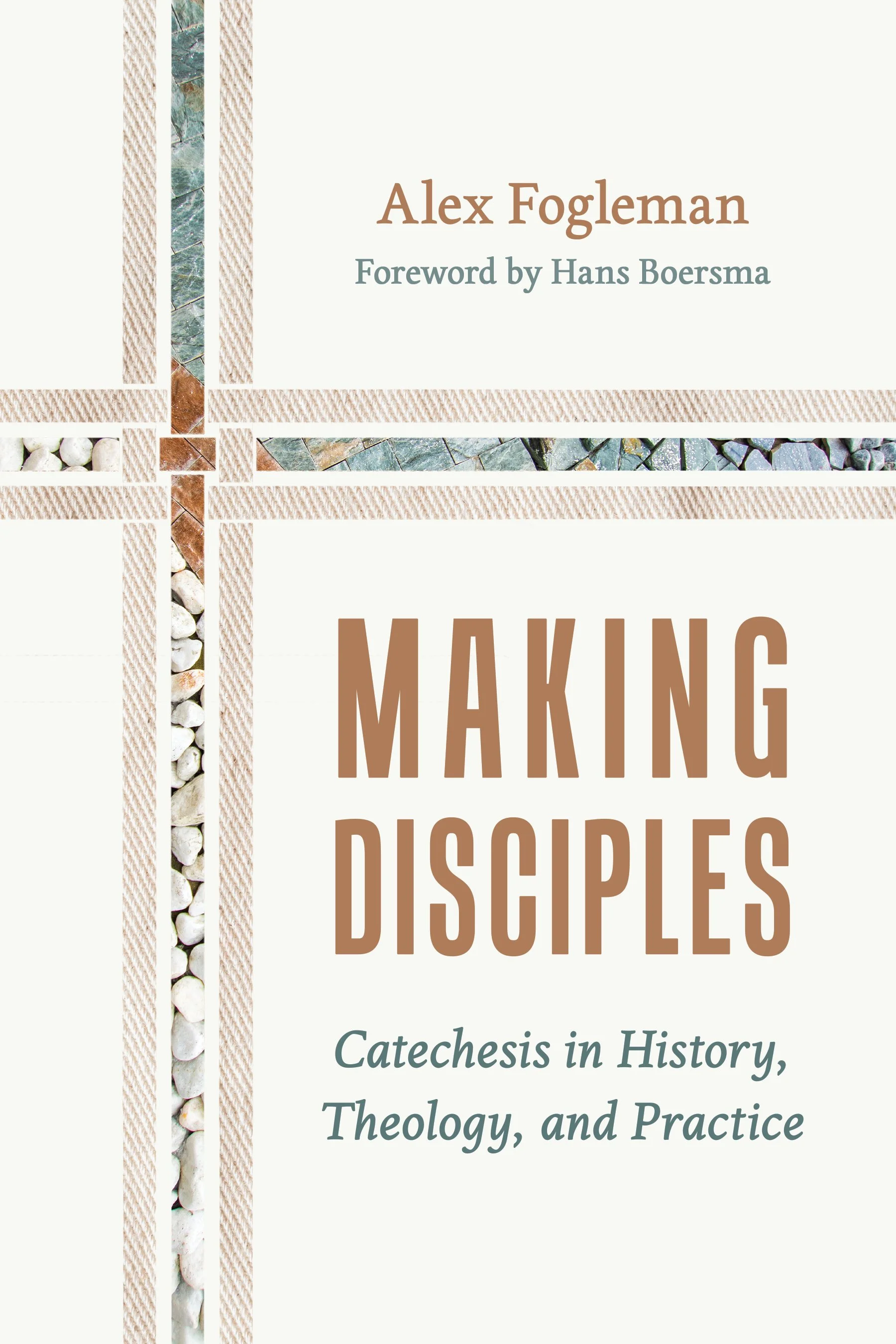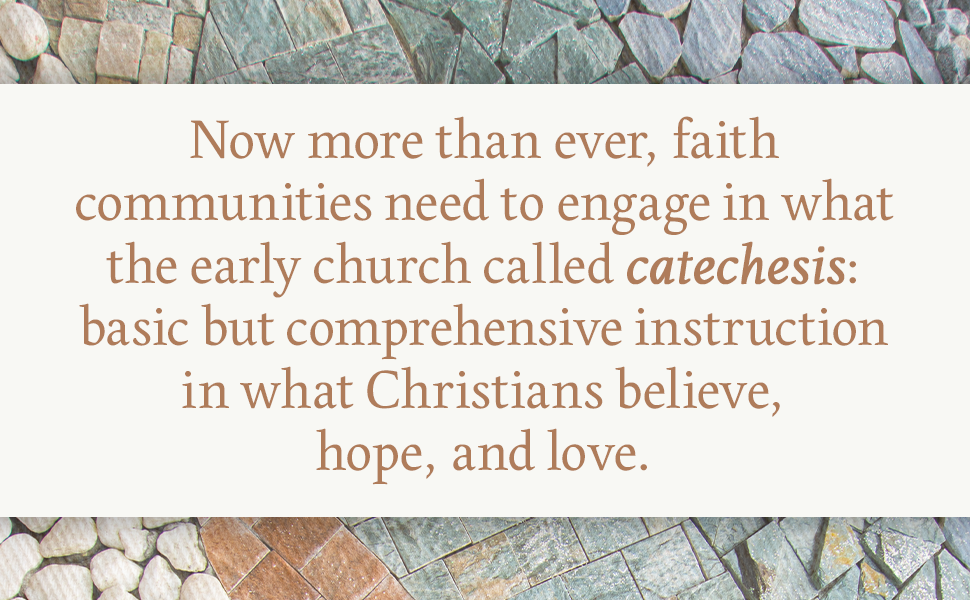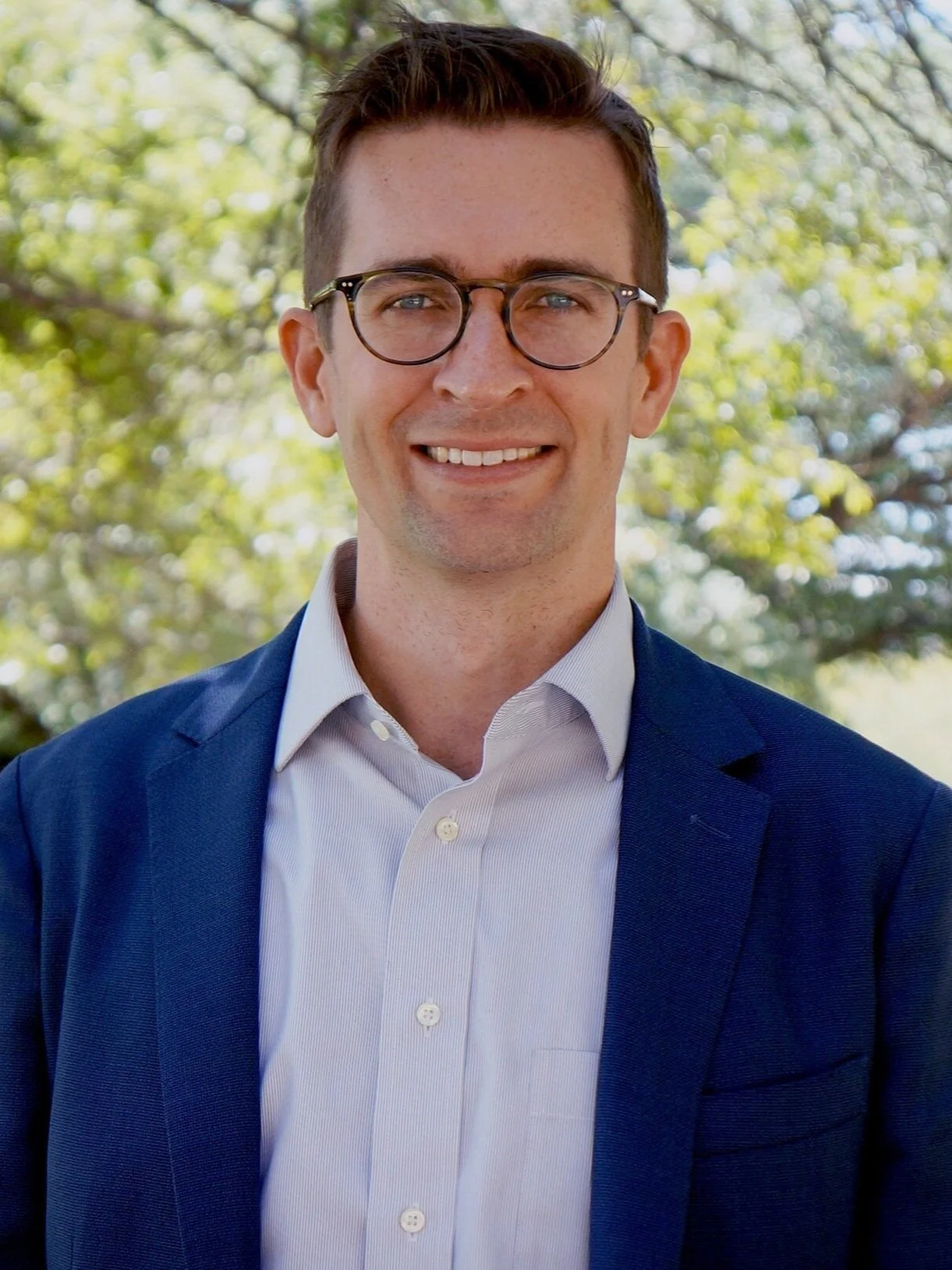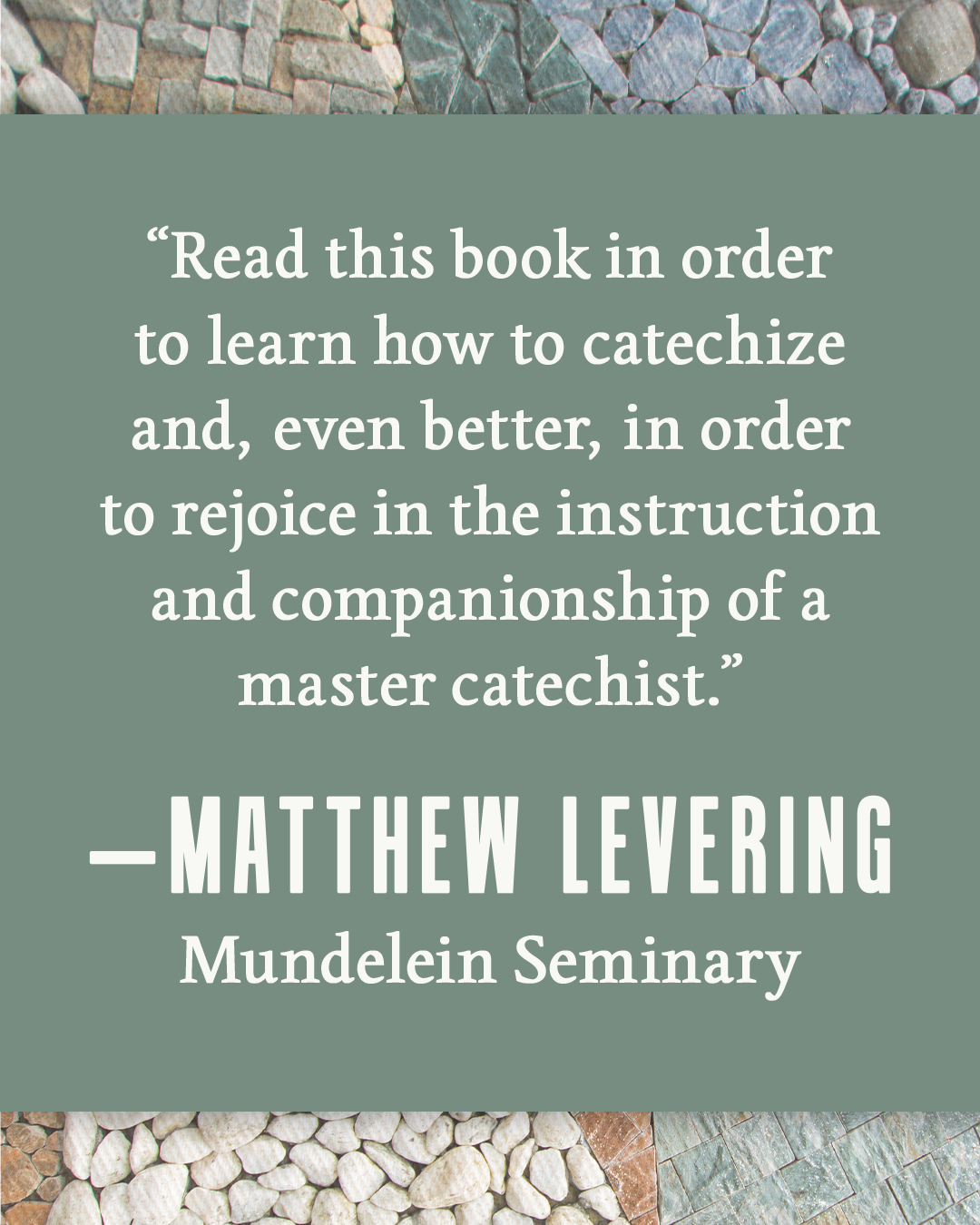Making Disciples: Catechesis in History, Theology, and Practice
By Alex Fogleman
Foreword by Hans Boersma
About the book
The mission of the early church was founded on a robust model of faith formation that took discipleship to Jesus as central to the message of the gospel. Today, many churches have lost sight of what catechesis is and how to practice it. As a result, we often lack the theological, spiritual, and moral foundations needed to remain rooted and grounded in Christ.
To meet this need, Alex Fogleman has written Making Disciples—an engaging historical and theological introduction to catechesis with many practical applications. Fogleman presents catechesis as laying the foundations of thinking, praying, and living as a Christian in a way that will help foster mature, lifelong discipleship to Christ. Combining wisdom from church history with contemporary examples, Making Disciples offers rich insights and practical resources for retrieving catechesis today.
Purchase
Table of Contents
Foreword by Hans Boersma
List of Abbreviations
Introduction: Founded on the Rock
1. The Beginning and End of Catechesis
2. The Rise of Catechesis in the Early Church
3. A Brief History of Catechesis from the Middle Ages to the Present
4. Catechesis and Worship
5. Catechesis and Mission
6. The Rule of Faith, Hope, and Love
7. Inhabiting the World through Scripture and Sacraments
8. The Relational Dimension of Catechesis
9. The Craft of Catechesis
Conclusion: Three Things Needful
Appendix 1: Beginning Catechesis at Your Church
Appendix 2: Building a Catechetical Library
Acknowledgments
About the Author
Dr. Alex Fogleman is Associate Dean of Special Programs and Assistant Professor of Theology at Trinity Anglican Seminary, where he oversees the Doctor of Ministry Program and the Robert E. Webber Center. In addition to founding the Catechesis Institute, he also directs the Catechesis Task Force for the Anglican Church of North America and is the author of Knowledge, Faith, and Early Christian Initiation (Cambridge University Press, 2023), which explores the development of catechesis in the early church.
What People are saying
“In this cultural moment when we are bombarded by many voices that seek to mold the soul, the timing and content of Fogleman’s guide to the nature and act of Christian instruction couldn’t be better. Herein is a most vital guide of instruction for whoever would instruct God’s people.”
—D. H. Williams, Baylor University
“With rare pastoral and theological insight, Alex Fogleman’s Making Disciples shows why catechesis has such deep roots in Christian history, and how it can once again fuel the life of the church today.”
—Thomas S. Kidd, Midwestern Baptist Theological Seminary
“The renewal of Christian catechesis is mission-critical to the church in late modernity—as it has been in epochs before. Expertly (and eloquently!) retrieving the treasures of catechetical wisdom from ages past, Alex Fogleman has provided us with a wonderfully wise and immensely practical guide to making disciples in the twenty-first century.”
—Joel Scandrett, Trinity Anglican Seminary
“Most of us have followed a tour guide whose knowledge and love of a place captures our interest. Scholars can be like that, too. They open up a world hitherto unknown or unexplored by people outside the discipline. They do more than inform; they excite and inspire. Alex Fogleman has done exactly that in his book on catechesis, appropriately titled Making Disciples. He has clearly mastered the sources. The book is dense for that reason, but it reads lightly, helping readers stroll it as if on a pleasant hike. It demonstrates learnedness, yet it is surprisingly readable. It communicates a great deal of information, yet it never loses sight of the outcome, which is to apply catechesis to the church today. Fogleman’s book is nothing short of a wonder. It should be on every pastor’s reading list. I highly recommend it.”
—Gerald L. Sittser, Whitworth University
“Catechesis or Christian formation never ends, for no believer is ever fully formed or wholly catechized. Alex Fogleman’s Making Disciples is a persuasive presentation on the need for ongoing, robust catechesis in the Christian church. Such formation is not a luxury but a necessary and essential ingredient for any healthy congregation.”
—Greg Peters, Nashotah House
“Alex Fogleman has written a book on catechesis that is also about so much more. Here we find out how to integrate faith, hope, and love; how to be deep both in Scripture and in sacrament; how to be a modern Christian who learns from the masters of Christian life, the church fathers; how to be a true disciple, filled with joy and wonder, who is able to share the faith in all circumstances; and how to value the catechetical tools and practices that Protestants, Catholics, and Orthodox Christians have developed. Read this book in order to learn how to catechize and, even better, in order to rejoice in the instruction and companionship of a master catechist.”
—Matthew Levering, Mundelein Seminary
“Jesus calls the church to ‘make disciples’ by ‘baptizing them in the name of the Father and of the Son and of the Holy Spirit and teaching them to obey everything that [he] commanded’ (Matt. 28:19–20). Yet discipleship does not just happen. As Tertullian, the second-century African church leader, contended, ‘Christians are made not born.’ Alex Fogleman provides an accessible account of the historic practice of making Christians, or catechesis, which guides new believers in the basic teaching of Christ (Heb. 6:1–2). This book not only offers a rich account of the ancient tradition, but it also shows how to cultivate a robust catechetical practice in our churches today to make disciples.”
—Curtis W. Freeman, Duke Divinity School
EXCERPT
For many reasons, catechesis has gone out of fashion, especially in evangelical circles. That may be something Roman Catholics or Lutherans do. Presbyterians may still cite the Westminster Catechism. But for most Christians, catechesis is a foreign or forgotten concept. Cata-what?
We have other things instead: evangelism, mission, small groups, Bible studies, Sunday school, Alpha. Not bad things, of course, but not catechesis. None do the foundational, ground-laying work that catechesis does. None give a basic but comprehensive introduction to the faith.
Catechesis is an urgent task for every age, but each age has its unique challenges. In the Reformation, for example, Catholics and Protestants disagreed vehemently about the nature of justification, but they did so because they shared much in common about basic issues like the doctrine of creation and the Trinity. Catechesis accordingly involved teaching the faithful against other Christian traditions with an emphasis on the doctrines that divided them. In North America today, the situation is different. Christians are grounded in the gospel of the American Dream rather than the gospel of the risen Christ. They live by the creed of expressive individualism rather than the creed of Nicene faith. Alan Jacobs has emphasized the many and various ways that “culture catechizes.” We’re inundated with algorithmically calculated messages that shape our beliefs and desires in powerful ways. And churches that lack a robust countercatechesis are unable to provide any real alternative. We’re left skimming the surfaces, formed by a secular vision of reality in a largely uncontested way.
We need a comprehensive model of Christian formation that addresses the challenges, and we need to re-form Christians who may have never been taught the basics of the faith. Even more important than learning new ideas, though, Christians need an education of the heart—a formation of desire. We need not only to know God but to love God, too, and to love our neighbors as ourselves. We need a kind of education that can strengthen our understanding of the faith and enable us to have a living encounter with the crucified and risen Lord. We need a retrieval of Christian catechesis.
In the early church, catechesis mostly referred to the instruction of new Christians before baptism. In some cases, it could last two to three years, and it was remarkably effective in helping converts make the difficult transition from a pagan way of life to a Christian one. Catechesis involved a process of conversion along with teaching the content of the faith. It was a dramatic theological, spiritual, and social transformation that entailed detachment from the dominion of darkness and the embrace of a radically new existence in the world.
As I will develop the concept in this book, catechesis can refer to teaching the faith at any stage of life in a way that builds the foundations of faith, hope, and love. Catechesis isn’t just for children or those brand-new to the faith. Catechesis is for all Christians, for all of life. Pastors can no longer assume, if they ever could, that showing up on Sundays is any sound indication of biblical or theological literacy. We need to reimagine theological and spiritual formation for the whole body of Christ.










